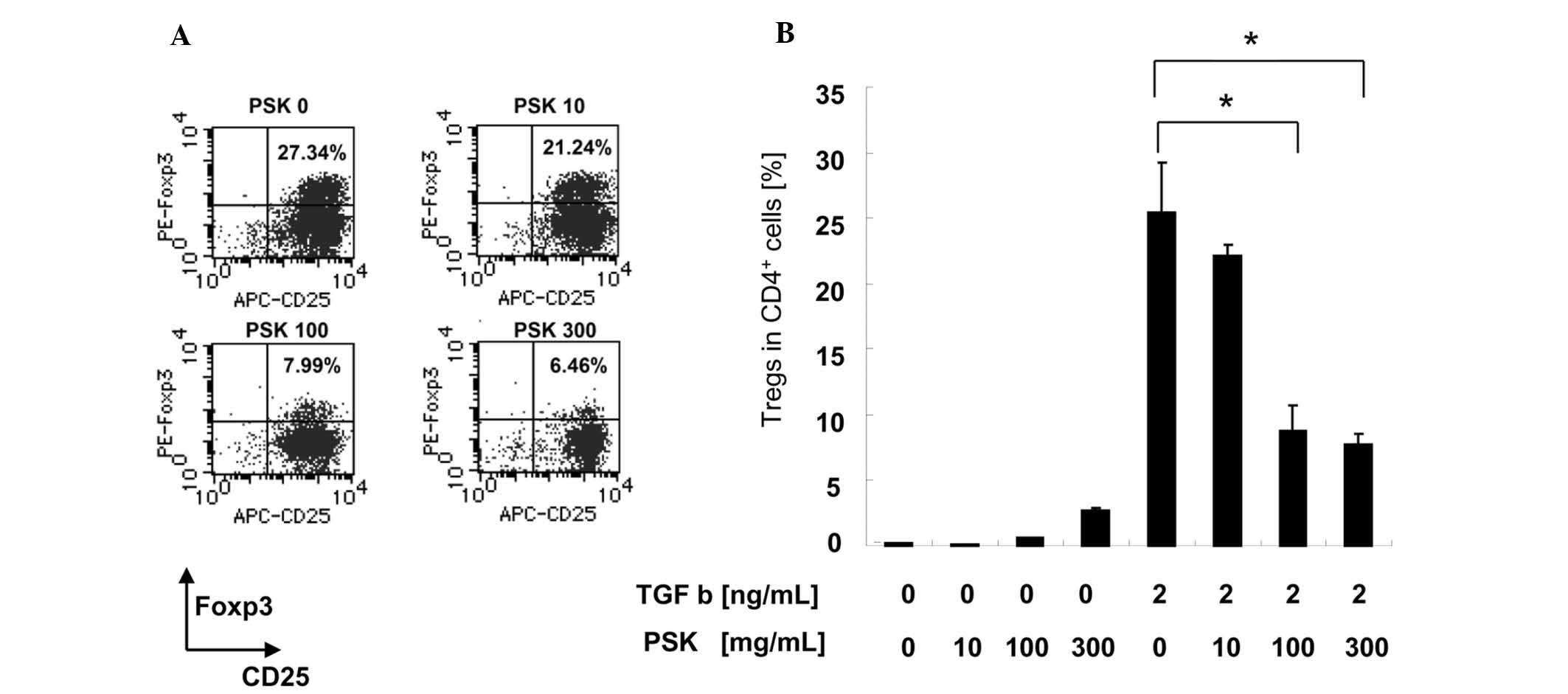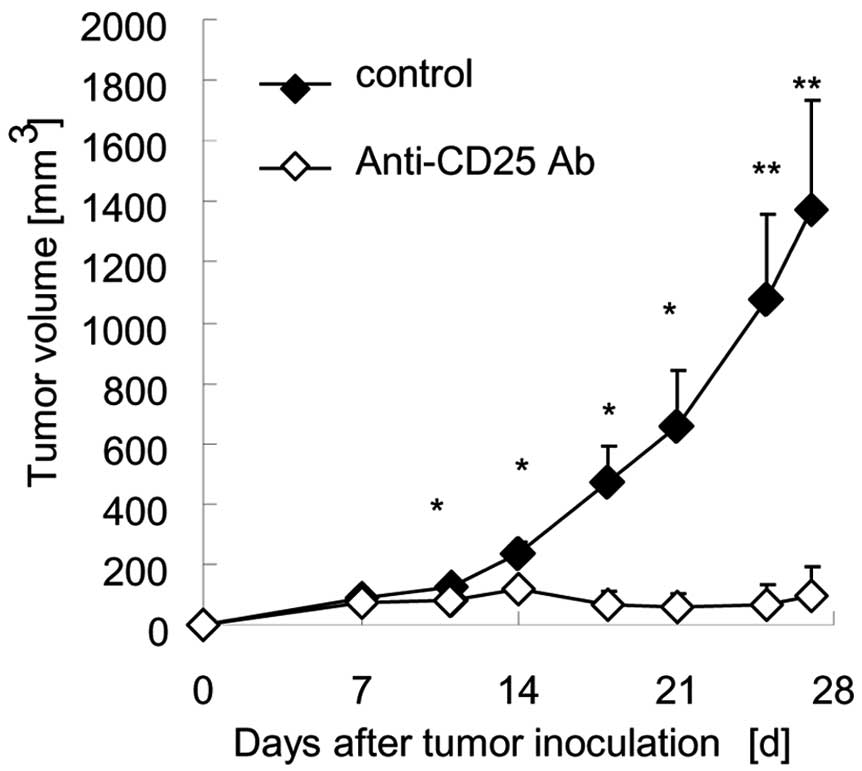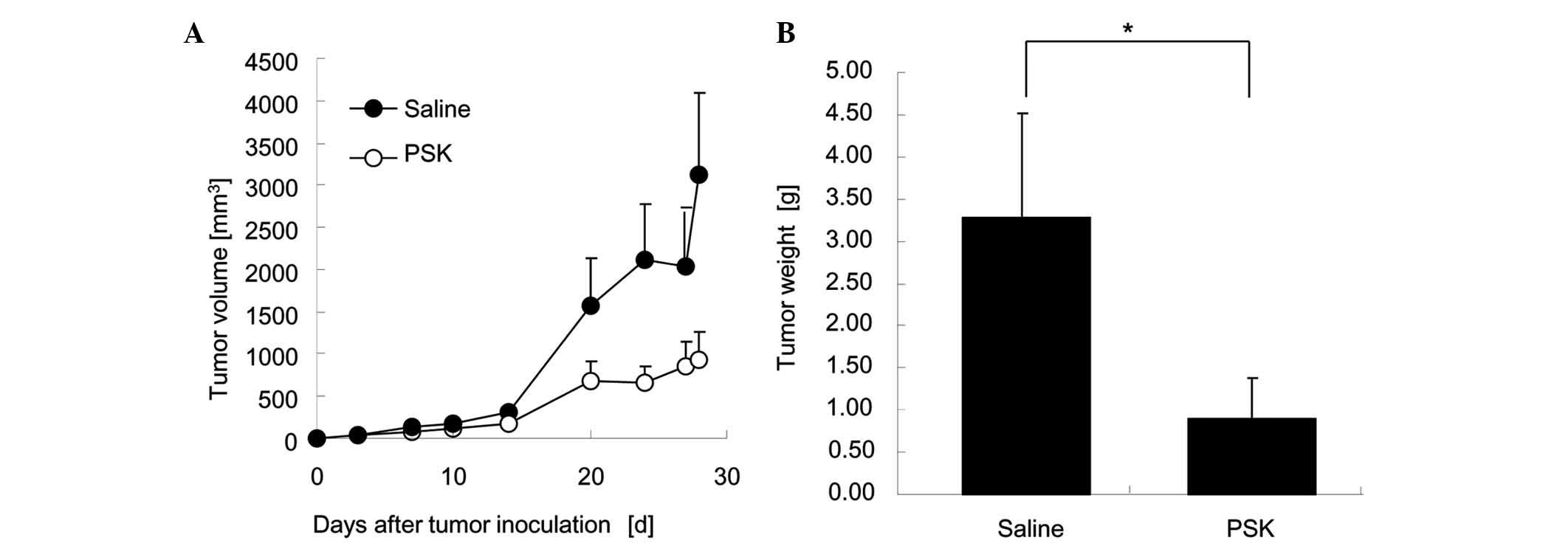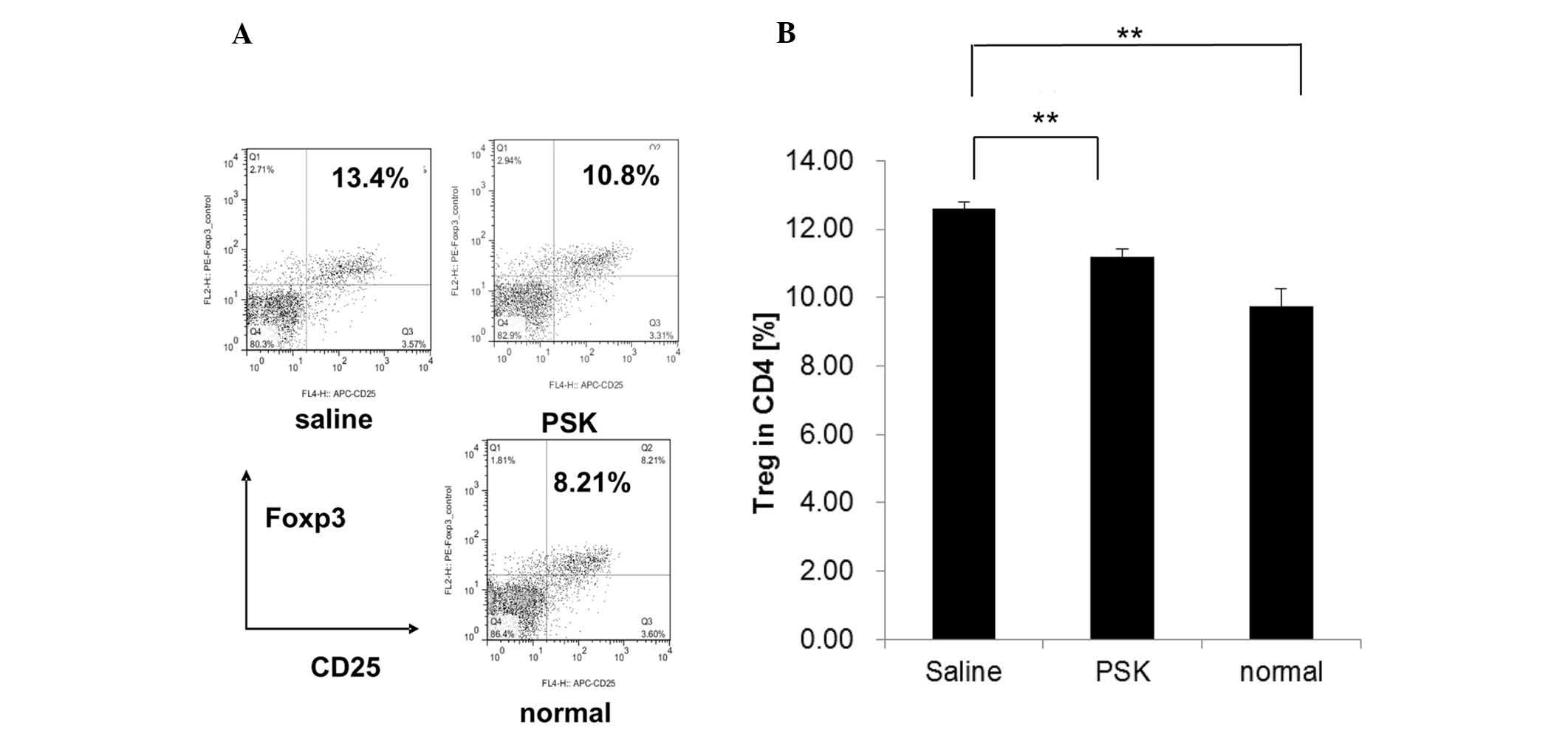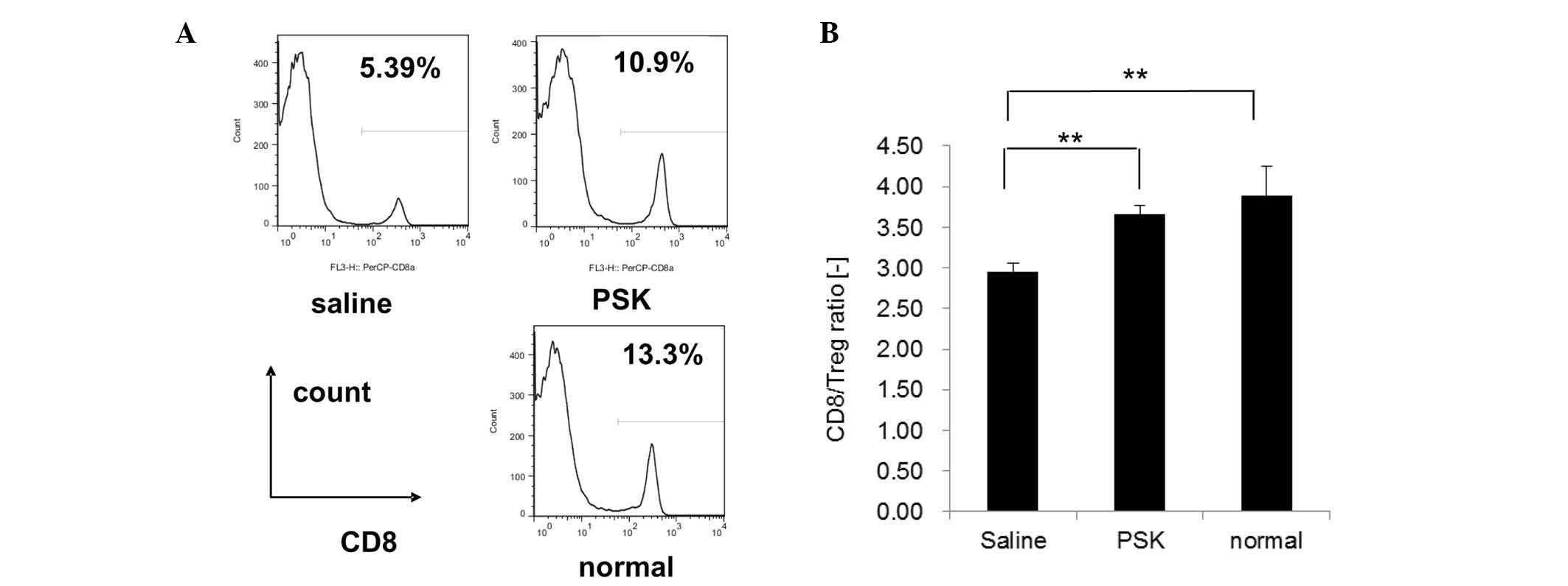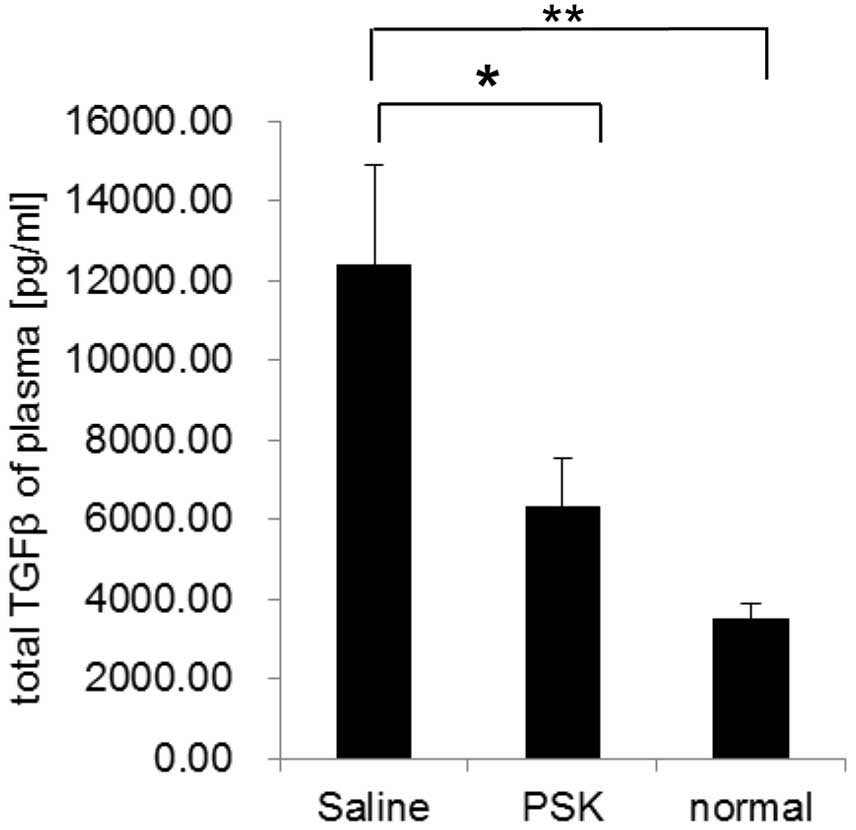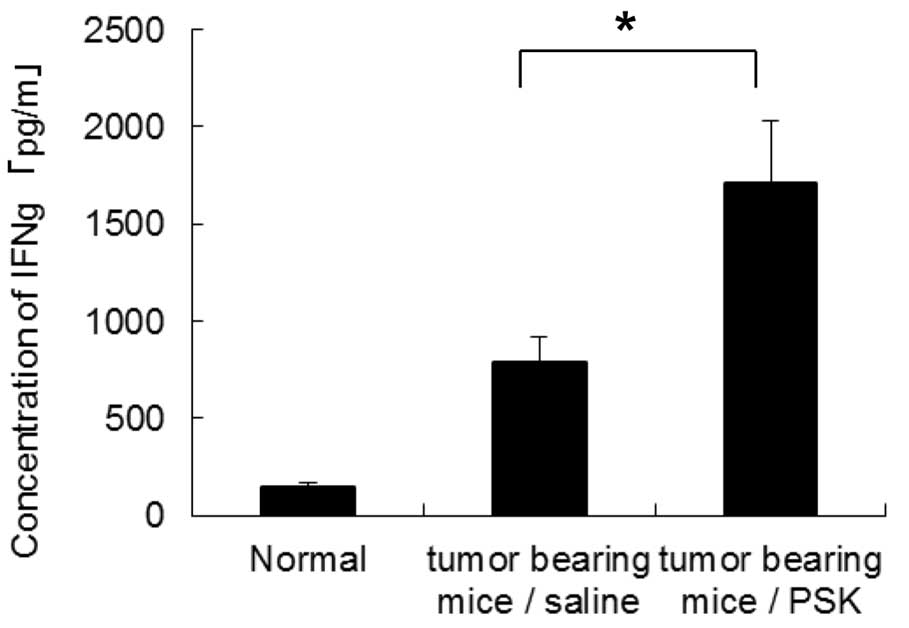|
1
|
Dunn GP, Old LJ and Schreiber RD: The
immunobiology of cancer immunosurveillance and immunoediting.
Immunity. 21:137–148. 2004. View Article : Google Scholar : PubMed/NCBI
|
|
2
|
Algarra I, Cabrera T and Garrido F: The
HLA crossroad in tumor immunology. Hum Immunol. 61:65–73. 2000.
View Article : Google Scholar : PubMed/NCBI
|
|
3
|
Sharma S, Stolina M, Lin Y, Gardner B,
Miller PW, Kronenberg M and Dubinett SM: T cell-derived IL-10
promotes lung cancer growth by suppressing both T cell and APC
function. J Immunol. 163:5020–5028. 1999.PubMed/NCBI
|
|
4
|
Lesokhin AM, Hohl TM, Kitano S, Cortez C,
Hirschhorn-Cymerman D, Avogadri F, Rizzuto GA, Lazarus JJ, Pamer
EG, Houghton AN, Merghoub T and Wolchok JD: Monocytic
CCR2+ myeloid-derived suppressor cells promote immune
escape by limiting activated CD8 T-cell infiltration into the tumor
microenvironment. Cancer Res. 72:876–886. 2012.
|
|
5
|
Yamaguchi T and Sakaguchi S: Regulatory T
cells in immune surveillance and treatment of cancer. Semin Cancer
Biol. 16:115–123. 2006. View Article : Google Scholar : PubMed/NCBI
|
|
6
|
Curiel TJ, Coukos G, Zou L, Alvarez X,
Cheng P, Mottram P, Evdemon-Hogan M, Conejo-Garcia JR, Zhang L,
Burow M, Zhu Y, Wei S, Kryczek I, Daniel B, Gordon A, Myers L,
Lackner A, Disis ML, Knutson KL, Chen L and Zou W: Specific
recruitment of regulatory T cells in ovarian carcinoma fosters
immune privilege and predicts reduced survival. Nat Med.
10:942–949. 2004. View
Article : Google Scholar : PubMed/NCBI
|
|
7
|
Woo EY, Yeh H, Chu CS, Schlienger K,
Carroll RG, Riley JL, Kaiser LR and June CH: Cutting edge:
regulatory T cells from lung cancer patients directly inhibit
autologous T cell proliferation. J Immunol. 168:4272–4276. 2001.
View Article : Google Scholar : PubMed/NCBI
|
|
8
|
Suzuki H, Chikazawa N, Tasaka T, Wada J,
Yamasaki A, Kitaura Y, Sozaki M, Tanaka M, Onishi H, Morisaki T and
Katano M: Intratumoral CD8+ T/FOXP3 + cell
ratio is a predictive marker for survival in patients with
colorectal cancer. Cancer Immunol Immunother. 59:653–661. 2010.
|
|
9
|
Maker AV, Attia P and Rosenberg SA:
Analysis of the cellular mechanism of antitumor responses and
autoimmunity in patients treated with CTLA-4 blockade. J Immunol.
175:7746–7754. 2005. View Article : Google Scholar : PubMed/NCBI
|
|
10
|
Jacobs JF, Punt CJ, Lesterhuis WJ,
Sutmuller RP, Brouwer HM, Scharenborg NM, Klasen IS, Hilbrands LB,
Figdor CG, de Vries IJ and Adema GJ: Dendritic cell vaccination in
combination with anti-CD25 monoclonal antibody treatment: a phase
I/II study in metastatic melanoma patients. Clin Cancer Res.
16:5067–5078. 2010. View Article : Google Scholar : PubMed/NCBI
|
|
11
|
Rech AJ, Mick R, Martin S, Recio A, Aqui
NA, Powell DJ Jr, Colligon TA, Trosko JA, Leinbach LI, Pletcher CH,
Tweed CK, DeMichele A, Fox KR, Domchek SM, Riley JL and Vonderheide
RH: CD25 blockade depletes and selectively reprograms regulatory T
cells in concert with immunotherapy in cancer patients. Sci Transl
Med. 4:134ra622012.
|
|
12
|
Chen W, Jin W, Hardegen N, Lei KJ, Li L,
Marinos N, McGrady G and Wahl SM: Conversion of peripheral
CD4+CD25− naive T cells to
CD4+CD25+ regulatory T cells by TGF-β
induction of transcription factor Foxp3. J Exp Med. 198:1875–1886.
2003.
|
|
13
|
Huber S, Stahl FR, Schrader J, Lüth S,
Presser K, Carambia A, Flavell RA, Werner S, Blessing M, Herkel J
and Schramm C: Activin a promotes the TGF-β-induced conversion of
CD4+CD25− T cells into Foxp3+
induced regulatory T cells. J Immunol. 182:4633–4640. 2009.
|
|
14
|
Hirahara N, Edamatsu T, Fujieda A, Fujioka
M, Wada T and Tajima Y: Protein-bound polysaccharide-K (PSK)
induces apoptosis via p38 mitogen-activated protein kinase pathway
in promyelomonocytic leukemia HL-60 cells. Anticancer Res.
32:2631–2638. 2012.
|
|
15
|
Sakagami H, Sugaya K, Utsumi A, Fujinaga
S, Sato T and Takeda M: Stimulation by PSK of interleukin-1
production by human peripheral blood mononuclear cells. Anticancer
Res. 13:671–675. 1993.PubMed/NCBI
|
|
16
|
Kato M, Hirose K, Hakozaki M, Ohno M,
Saito Y, Izutani R, Noguchi J, Hori Y, Okumoto S, Kuroda D, et al:
Induction of gene expression for immunomodulating cytokines in
peripheral blood mononuclear cells in response to orally
administered PSK, an immunomodulating protein-bound polysaccharide.
Cancer Immunol Immunother. 40:152–156. 1995. View Article : Google Scholar
|
|
17
|
Matsunaga K, Hosokawa A, Oohara M, Sugita
N, Harada M and Nomoto K: Direct action of a protein-bound
polysaccharide, PSK, on transforming growth factor-beta.
Immunopharmacology. 40:219–230. 1998. View Article : Google Scholar : PubMed/NCBI
|
|
18
|
Harada M, Matsunaga K, Oguchi Y, Iijima H,
Tamada K, Abe K, Takenoyama M, Ito O, Kimura G and Nomoto K: Oral
administration of PSK can improve the impaired anti-tumor
CD4+ T-cell response in gut-associated lymphoid tissue
(GALT) of specific-pathogen-free mice. Int J Cancer. 70:362–372.
1997. View Article : Google Scholar : PubMed/NCBI
|
|
19
|
Yoshikawa K, Shimada M, Kurita N, Sato H,
Iwata T, Nishioka M, Morimoto S, Miyatani T, Komatsu M and And RN:
The effect of polysaccharide k with s-1 based chemotherapy in
advanced gastric cancer. Hepatogastroenterology. 60:1387–1390.
2013.PubMed/NCBI
|
|
20
|
Yoshino S, Yoshimura K, Suzuki N, Iida M,
Yoshida S, Maeda Y, Maeda K, Hazama S and Oka M: Immunoregulatory
effects of PSK on the Th1/Th2 balance and regulatory T-cells in
patients with colorectal cancer. Gan To Kagaku Ryoho. 37:2234–2236.
2010.(In Japanese).
|
|
21
|
Onizuka S, Tawara I, Shimizu J, Sakaguchi
S, Fujita T and Nakayama E: Tumor rejection by in vivo
administration of anti-CD25 (interleukin-2 receptor α) monoclonal
antibody. Cancer Res. 59:3128–3133. 1999.PubMed/NCBI
|
|
22
|
Shen E, Zhao K, Wu C and Yang B: The
suppressive effect of CD25+ Treg cells on Th1
differentiation requires cell-cell contact partially via TGF-β
production. Cell Biol Int. 35:705–712. 2011.
|
|
23
|
Lu H, Yang Y, Gad E, Wenner CA, Chang A,
Larson ER, Dang Y, Martzen M, Standish LJ and Disis ML:
Polysaccharide krestin is a novel TLR2 agonist that mediates
inhibition of tumor growth via stimulation of CD8 T cells and NK
cells. Clin Cancer Res. 17:67–76. 2011. View Article : Google Scholar : PubMed/NCBI
|
|
24
|
Aarntzen EH, De Vries IJ, Lesterhuis WJ,
Schuurhuis D, Jacobs JF, Bol K, Schreibelt G, Mus R, De Wilt JH,
Haanen JB, Schadendorf D, Croockewit A, Blokx WA, Van Rossum MM,
Kwok WW, Adema GJ, Punt CJ and Figdor CG: Targeting CD4+
T-helper cells improves the induction of antitumor responses in
dendritic cell-based vaccination. Cancer Res. 73:19–29.
2013.PubMed/NCBI
|
|
25
|
Sawada Y, Yoshikawa T, Nobuoka D,
Shirakawa H, Kuronuma T, Motomura Y, Mizuno S, Ishii H, Nakachi K,
Konishi M, Nakagohri T, Takahashi S, Gotohda N, Takayama T, Yamao
K, Uesaka K, Furuse J, Kinoshita T and Nakatsura T: Phase I trial
of a glypican-3-derived peptide vaccine for advanced hepatocellular
carcinoma: immunologic evidence and potential for improving overall
survival. Clin Cancer Res. 18:3686–3696. 2012. View Article : Google Scholar
|
|
26
|
Rosenberg SA, Yang JC and Restifo NP:
Cancer immunotherapy: moving beyond current vaccines. Nat Med.
10:909–915. 2004. View
Article : Google Scholar : PubMed/NCBI
|
|
27
|
Kawano M, Itonaga I, Iwasaki T, Tsuchiya H
and Tsumura H: Anti-TGF-β antibody combined with dendritic cells
produce antitumor effects in osteosarcoma. Clin Orthop Relat Res.
470:2288–2294. 2012.
|















